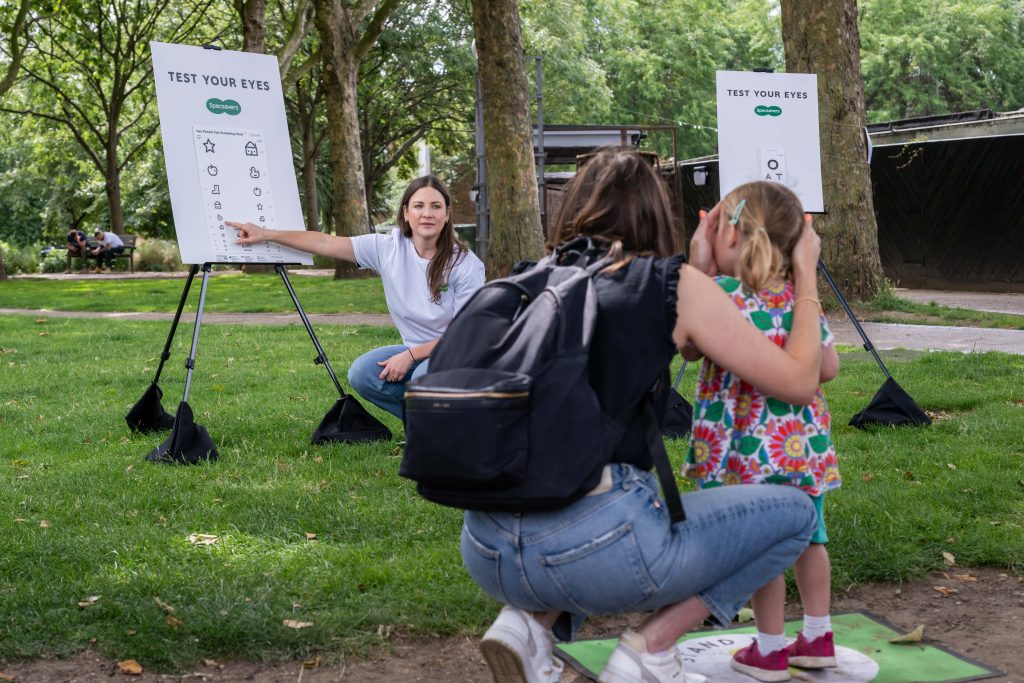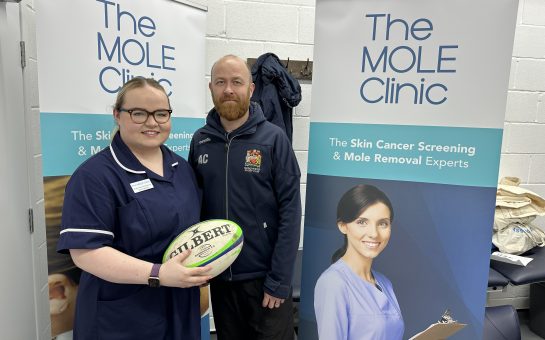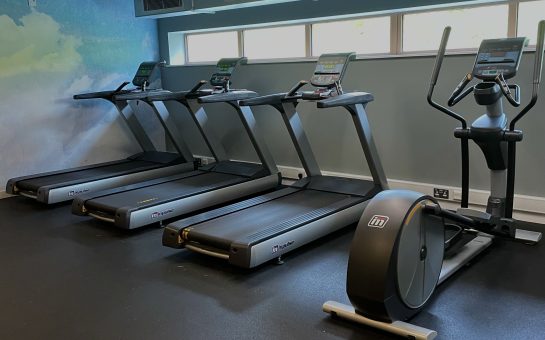New research has revealed a quarter of children have never had an eye test, with the uptake remaining low now for the past 15 years in the UK.
This is despite over a quarter (26%) of parents saying their child had experienced problems at school which could be linked to vision.
The most common issues raised includes struggling to see the whiteboard (37%), having to move to the front of the classroom to see (33%) or experiencing headaches (28%).
Little progress has been seen in the last 15 years as research conducted by Specsavers in 2009, showed just under a quarter (23%) of children aged between 3-12 had never had an eye test.
To combat this trend, Specsavers has launched its first ever ‘eye screen’ van to put children’s eye health and eye tests at the top of parents’ agendas this summer.
Popping up on London’s South Bank and at The Royal Botanical Garden in Edinburgh, the van was not only equipped with ice lollies, but also visual screeners, to help identify any potential eyesight problems in children and alert their parents if they required a more thorough eye test.
The latest survey found the most common reasons parents haven’t taken their child for an eye test is because they have no visible problems (35%) or haven’t mentioned a problem (22%).
Other reasons include parents not being advised that their child needs an eye test (21%) or knowing at what age they should have one (15%).

Specsavers clinical services director Giles Edmonds said: ‘A lot of parents assume that because their child doesn’t display any signs of a vision problem, there’s no need to have their eyes tested.
“However, this couldn’t be further from the truth. Ensuring your child has regular eye examinations from an early age is incredibly important for several reasons. Given more than 80 per cent of our learning, cognitive and social abilities are facilitated through our sight, it’s extremely important to your child’s overall development.
“Poor eyesight can cause learning and behavioural problems. Conditions such as squinting and amblyopia (lazy eye) can be treated more effectively if they are picked up earlier, which could make a huge difference to your child.”
Children under the age of 16, as well as those under 19 in full-time education, are entitled to an NHS-funded eye test and free pair of glasses at any high street opticians. However over one in five (22%) parents are not aware of this.

The research also found that during school holidays, parents have a back-to-school list of around 6 tasks, including everything from buying new school unforms (57%), shoe fittings (45%) and stationary shopping (40%).
However, eye tests rank near the bottom of the pile (20%), alongside dental checks (22%) with both only prioritised by a fifth of parents.
The research also found children are reluctant to get their eyes tested. Over a third (35%) are scared or worried or think it will hurt, just under a third (30%) don’t know what to expect and one in five (20%) fear the dark.
To combat this, Specsavers is looking at ways to make a visit to the opticians more fun with the launch of its friendly ‘Optomonsters’. Customers will start to notice the Optomonsters popping up in stores nationwide soon.
For more information, please visit Specsavers’ dedicated page for all things relating to children’s eyecare.




